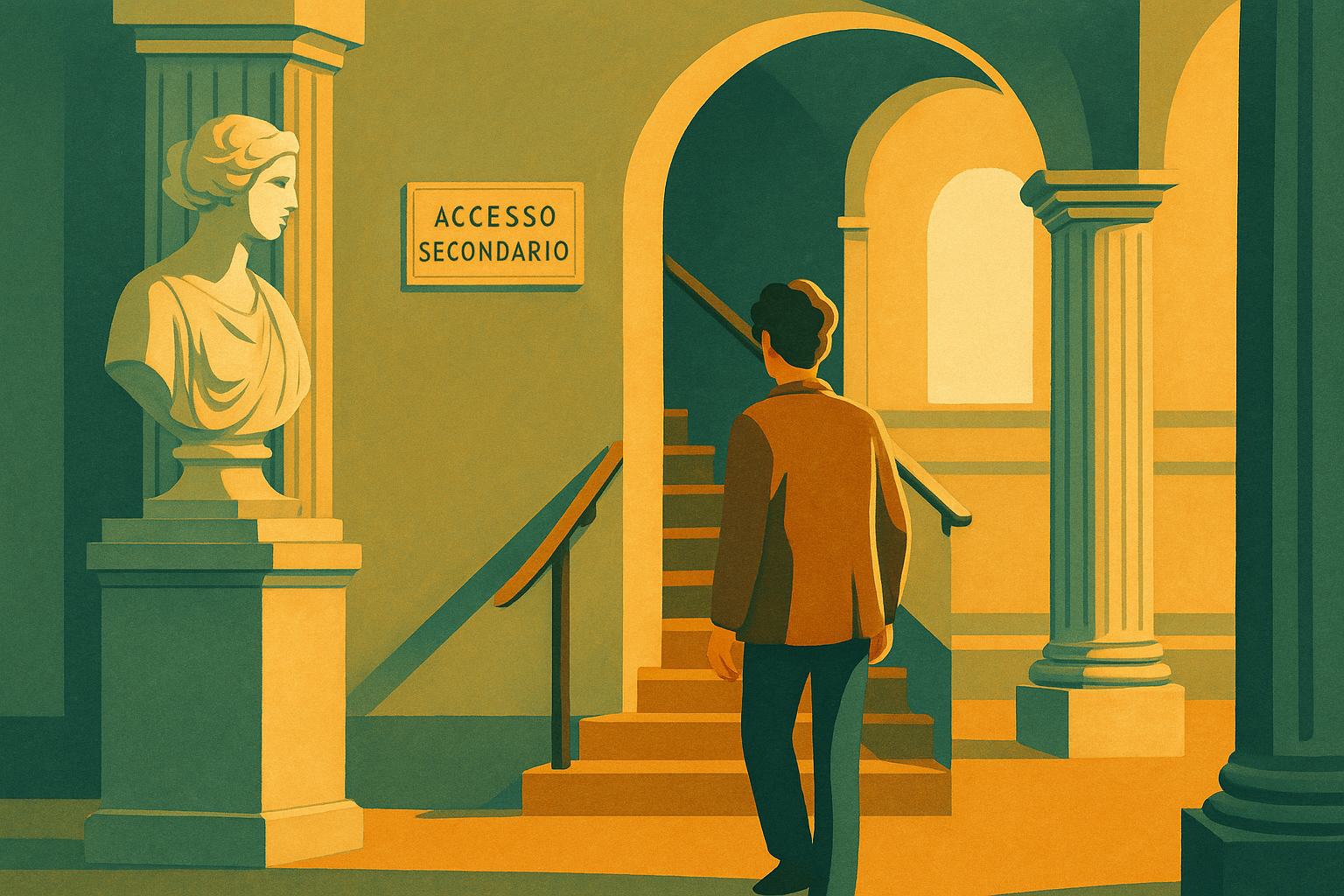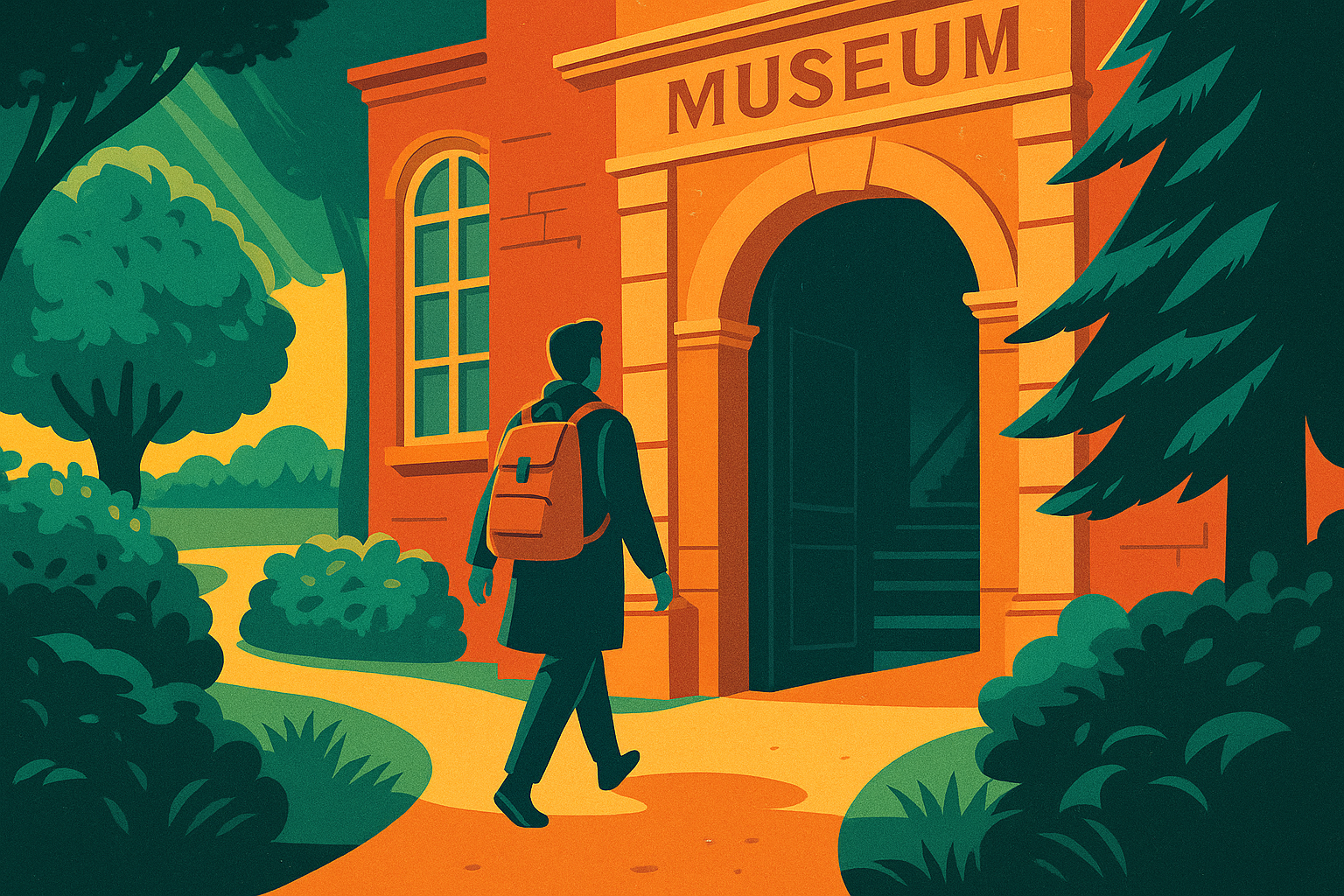Secret Entrances to Europe’s Most Popular Museums
Tired of standing in endless ticket lines at Europe’s busiest museums? You’re not alone. From the Louvre in Paris to the Vatican in Rome, the main entrances are a magnet for crowds. But what most tourists don’t know is that many of these landmarks have little-known alternative entrances. Some originally built for royalty, some just hidden in plain sight. Below, we’ll reveal some of Europe’s most iconic museums and how to find their lesser-known entrances.
Planning a museum trip as part of your travels? Don’t miss our guide to Hidden baggage fees or our Duty-free shopping hacks before you fly.
🚪 Quick Take: Some of Europe’s most iconic museums have lesser-known entrances that savvy locals use to skip the lines. Here’s how to find them.

Paris: Louvre Museum
Website: https://www.louvre.fr/en
The Louvre’s iconic glass pyramid entrance is famous, and it’s also notoriously crowded. But did you know there’s a lesser-known entrance directly from the Carrousel du Louvre underground mall?
- 📍 Location: Enter via 99 Rue de Rivoli
- 🕳️ What makes it secret: Many Parisians use this to access the museum with no wait, especially if you already have a ticket
- 🔑 Tip: Arrive before 10am and use the Galerie du Carrousel escalators
Paris: Musée d’Orsay
Website: https://www.musee-orsay.fr/en
Most tourists queue outside the museum’s main front entrance. But a discreet group entrance on the left side (Rue de Lille) often allows faster entry for timed ticket holders and special access passes.
Find out more on the museum website: Admission, opening times, tickets

Rome: Vatican Museums
Website: https://www.museivaticanitickets.com/en/
The Vatican’s main queue wraps around the walls. But if you’re doing St. Peter’s Basilica first, look for the “secret” internal passage that connects it to the Vatican Museums, usually used by guided tours.
- 💡 Tip: Book a combined ticket or join a guided group: They unlock access through this route
Find out more on the Vatican Museums website
🇬🇧 London: British Museum & Tate Modern
Website: https://www.tate.org.uk/visit/tate-britain
British Museum has side entrances on Montague Place, which are often less crowded. At the Tate Modern, most head to the riverside doors — but the Switch House entrance (on Sumner St.) is calmer and leads you directly to modern exhibits.
Amsterdam: Rijksmuseum
Website: https://www.rijksmuseum.nl/en
The majestic archway under the Rijksmuseum offers multiple entry points, but few realize the right-hand side escalator entrance (facing the museum) is often faster. This is especially useful during peak hours and school tours.

Helsinki: Amos Rex & Ateneum
Amos Rex Website: https://amosrex.fi/en/
Ateneum Website: https://ateneum.fi/en/
Amos Rex is cleverly built underground beneath Lasipalatsi (the “Glass Palace”), making it feel hidden by design. Our recommendation is to enter through the accessible doors on the Lasipalatsi Square side: This side entrance is quieter and less trafficked than the main entrance on Mannerheimintie. It’s a great way to flow into the museum discreetly while admiring the iconic domed skylights that blend the building into the public plaza above. Explore the hill-like domes first, then head downstairs for a surprising subterranean art experience.
At Ateneum, most people use the main door on Kaivokatu. However at the back, on Ateneuminkuja there is a wheelchair-accessible entrance that is usually more quite. Check signage, as it’s not always obvious.
Pergamon Museum – Berlin
Website: https://www.smb.museum/en/museums-institutions/pergamonmuseum/home/
The Pergamon’s Museum Island entrance faces Museuminsel but a quieter alternative is through Am Kupfergraben street from the university side. Locals use this to avoid tourist congestion near Lustgarten.
⚠️ Note: The museum is temporarily closed for renovations — check ahead if exhibits are open again.
Vasari Corridor – Florence
Website: https://www.uffizi.it/en/corridoio-vasariano
The Vasari Corridor is a hidden elevated passage built in 1565 by Giorgio Vasari for the Medici dynasty. It links the Uffizi Gallery with Palazzo Pitti via a route suspended above Florence’s rooftops and goes over the River Arno across the Ponte Vecchio.
After eight years of restoration, it reopened to the public in late 2024, offering
a unique, crowd‑free way to experience Florence’s art and architecture.
The corridor features over 70 windows with panoramic views of the Arno and the city,
and passage through it feels like stepping into a hidden layer of Renaissance privilege.
How to Find a Museum’s Hidden Entrance
- 📱 Use Google Street View to walk the area before your visit
- 🎫 Pre-purchase tickets, as they are often required for side access
- 🔐 Join museum newsletters for “members-only” access info
- 👥 Ask local guides or staff; they’ll tell you what works best
Pro Tip from Hidden Portals
Look for side paths marked as “Group Entry,” “Priority Access,” or “Accessible Entry.” These often allow any ticketed guest in, especially during peak times.
Final Thoughts
From Paris to Helsinki, museum “secret doors” aren’t always mythical, they’re real, functional, and often built for convenience. With this guide, you can skip the tourist stampede and get more art, less waiting.
Quick Access to Official Museum Websites
Have a secret entrance you’ve discovered? Share it with us by getting in touch — if we like it, we’ll feature it in the next secret entrance post!
✉️ Want more hidden travel strategies like these?
Subscribe to our newsletter for exclusive hacks, updates, and guides that don’t show up in your feed.

2 thoughts on “Secret Entrances to Europe’s Most Popular Museums”